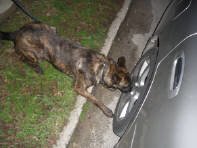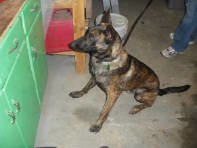


LICENSED &
INSURED
LEGAL ISSUES FOR SCHOOL ADMINISTRATIONS
The "Drug Free Schools and Communities Act of 1986" passed by Congress finds that schools and local organizations in communities throughout the Nation have special responsibilities to work together to combat the scourge of drug use.. Prompt action by our Nation's schools, families and communities can bring significantly closer the goal of a drug-free generation and a drug-free society. Federal and state funding is available to help implement this law.
Public school officials have a duty to protect their students and maintain a safe environment conducive to education.
The Fifth Circuit of the United States Court of Appeals has recognized that to fulfill these duties, school officials must have broad supervisory and disciplinary powers. The issue is that "as a matter of constitutional law", can a school district, acting in good faith in an effort to deal with a serious drug and alcohol problem, subject students, their lockers, and their automobiles to the exploratory sniffing of dogs trained to detect certain contraband?
In Horton v. Goose Creek Independent School District the fourth amendment right to be free from unreasonable searches and seizures was a constitutional concern. The court distinguishes between the use of canine detection with regard to lockers and automobiles on the one hand and the students' person on the other.
With regard to lockers and automobiles, the Court held that a dogs' sniffing of students' lockers in public school hallways and automobiles parked in public school parking lots does not constitute a search within the meaning of the fourth amendment, and therefore, is not unconstitutional. The court analogizes the sniffing of lockers to the sniffing of luggage checked in at the an airport or bus terminal reasoning that there is no reasonable expectation of privacy in the airspace surrounding the luggage.
Additionally the Court speaks to a "public smell" doctrine adopted by other courts as an exclusion to the protection of the fourth amendment and analogizes it to the doctrine of plain view which is also outside the purview of the fourth amendment (the doctrine of plain view basically states that contraband exposed to public view is not afforded fourth amendment protection.
In reference to the fourteenth amendment protection against the deprivation of liberty without due process of law, the Court held that the minimal harassment accompanying the mere presence of the dogs on school grounds did not rise to the level of due process violation. This conclusion was reached regardless of the fact that these dogs were of the breeds often used as police service dogs because the ones employed in this situation were selected due to their non-aggressive and docile nature.



Snyder's K-9 Scent Detection
Drug Detection Services
Frankfort, IN 46041
765-242-9425

Welcome to Snyder's K-9 Scent Detection
Serving You Nationwide
RESIDENTIAL - BUSINESSES - SCHOOLS - WAREHOUSES - VEHICLES
